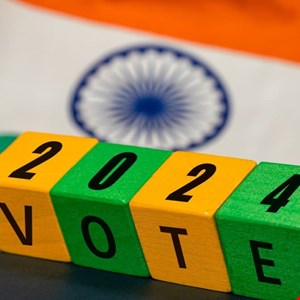- This video doorbell camera has just as many features are my Ring - and no subscription required
- LG is giving away free 27-inch gaming monitors, but this is the last day to grab one
- I tested this Eufy security camera and can't go back to grainy night vision
- I replaced my iPhone with a premium dumbphone - here's my verdict after a month
- Build your toolkit with the 10 DIY gadgets every dad should have
Indian Election Faces Cyber-Attacks, Data Leaks on Dark Web

Security researchers have reported a significant increase in cyber activity targeting the upcoming Indian general election.
This surge, driven by various hacktivist groups, has resulted in the leakage of personal identifiable information (PII) of Indian citizens on the dark web. The election, set to occur in seven phases from April 19 to June 1 2024, will determine all 543 members of the Lok Sabha. The results will be announced on June 4 2024.
According to new data by Resecurity, the cyber-attacks, which have intensified since the launch of the #OpIndia campaign last year, saw a 300% spike following the #OpIsrael campaign. This increase is linked to heightened online protests amid the Israel-Gaza crisis.
More generally, India, with its population of over 1.4 billion and a GDP of $3.41T, has become a prime target for foreign threat actors and nation-state groups.
The Resecurity advisory suggested that the geopolitical volatility, marked by conflicts in the Middle East and Eastern Europe, underscores the need for secure elections to maintain global democratic stability. The company’s findings also reveal cyber-attacks targeting elections in over 17 countries, with India following similar patterns involving data leaks, misinformation and foreign interference.
Resecurity said it had alerted Indian authorities about the leaked voter ID cards and other sensitive data, emphasizing that these leaks aim to undermine trust in India’s election systems. The stolen data, including identifying AADHAAR and PAN details, is likely from compromised third-party systems used for know-your-customer (KYC) purposes. Cybercriminals have exploited this information to foster narratives of election system insecurity.
The security firm also urged Indian citizens to remain cautious of unreliable sources that could influence their voting decisions, highlighting the necessity of robust digital identity protection measures.

